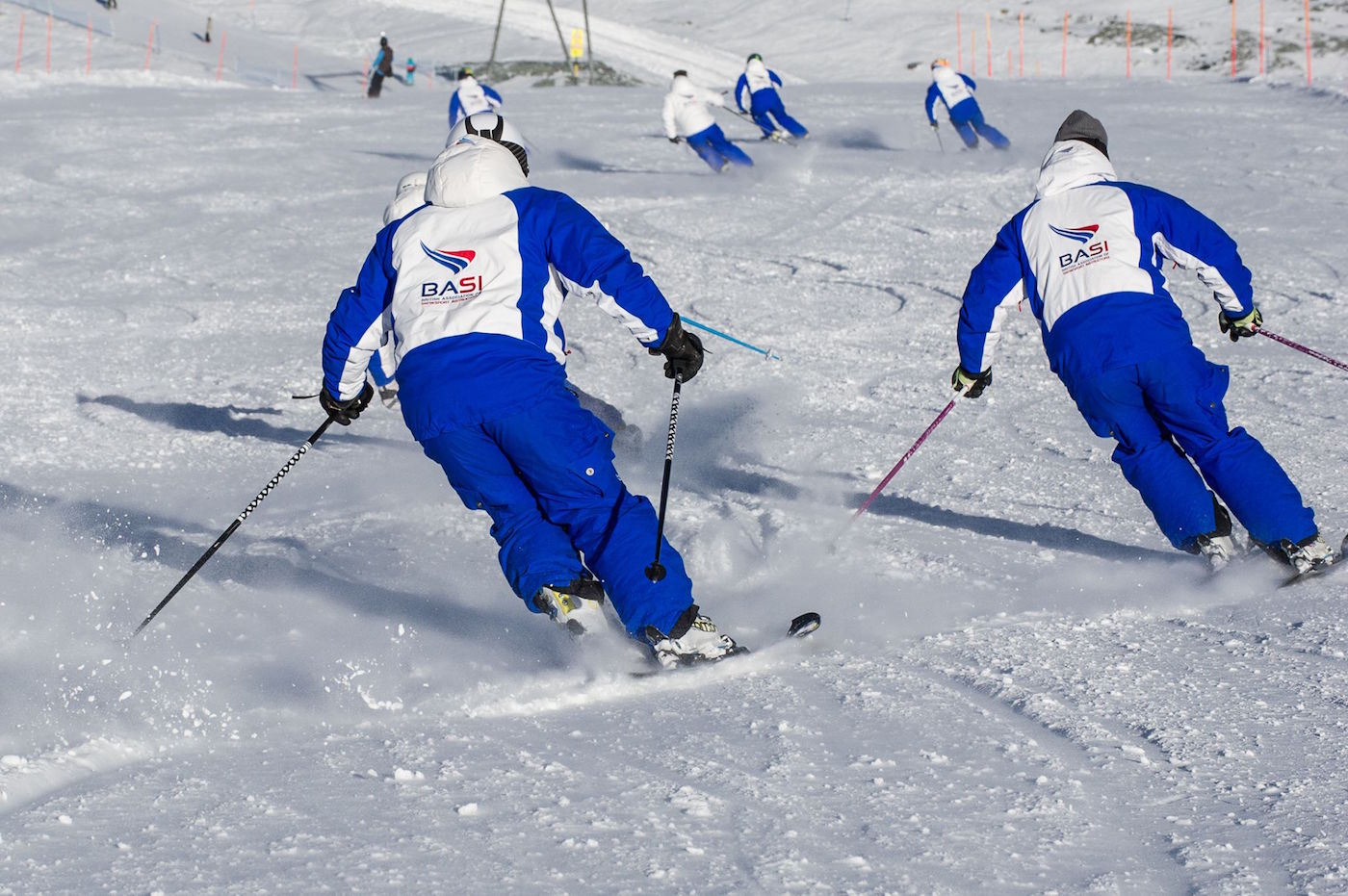The final assessment on our 12-week ski instructor course in France is a big exam: it’s a 10-day pièce de résistance that separates those strong in body and mind from the weak!
And it’s worth it: this qualification is internationally respected and enables those who pass to work in instructor roles throughout the world.
We’ve been running our ski instructor courses in the Three Valleys since 2010 - working alongside the largest British ski school in Meribel, Parallel Lines. And over the last 8 years we have developed a close relationship to ensure that our course participants get the best tuition possible.
Because of this our average pass rate for those taking their Level 2 exam with us is a whopping 83%!
Here’s our guide on what’s involved and how to make sure you’re one of those who pass:
First thing, BASI Level 2 Ski Instructor Course & Exam prerequisites:
This should be common sense, but you cannot progress to Level 2 with having a full Level 1 certification first, this means completing the following:
- Level 1 exam pass
- A BASI approved first aid certificate
- The BASI online Child protection module
- 35 hours of work experience from a BASI ski school
Before you can sit the Level 2 exam you must also have additional 35 hours of work experience. This makes for a total of 70 hours’ experience once you include the 35 hours already needed for Level 1.
With those boxes ticked, you'll have everything you need in order to book and sit the Level 2 exam.
So, what does the BASI Level 2 Exam involve?
You’ll be assessed across 10 examination days - with a weekend split in the middle to recuperate - and your participation and performance with be tightly monitored.
You’ll be assessed on your competence to teach beginners and intermediates (who will be your course peers) within marked and open runs, and within a recreated ski school structure.
While the exam progresses, your assessors will provide ongoing feedback on strengths, areas for improvement, and how to make these changes before the end of the exam.
And based on this feedback, you’ll have to formulate an ongoing action plan with the assessor. You'll put that plan into practice throughout the exam to ensure you meet the examiners’ criteria.
The areas you are assessed on can be split into 4 main categories:
- Technical Assessment Criteria
- Teaching Assessment Criteria
- Delivery
- Safety
Here’s a breakdown of each category:
1. Technical Assessment Criteria
This is the section where your technical skiing will be scrutinised - and you will be asked to demonstrate your ability in the following areas throughout the 10-day exam:
- Perform all elements of the central theme:
- Introduction/warm up activities - sliding - snowplough - snowplough turning - plough-paralleling - parallel turning.
As well as your ability to ski:
- Long turns
- Short Turns
- Variable terrain and conditions
- Steep terrain
- Bump skiing
2. Teaching Assessment Criteria
Here, your knowledge of the central teaching theme, methods of analysis, development and training will be examined. Basically, this part is about your technical ability to assess and improve someone’s skiing.
You’ll have to show that you can identify faults in ski technique – and that you have an understanding of the various teaching styles, learning styles, and the development of solutions and exercises to put into action thereafter.
As well as this, you’ll have to be able to show that you understand lesson planning and implementation.
3. Delivery
Your ability to execute a lesson and communicate as an instructor is what’s judged here.
This entails structure, personal feedback/reviewing, goal setting/goal achieving – as well as how comfortable and enjoyable you can make a lesson.
While technical knowledge is important, the way you personally come across will play a big part in this area. If you do not look like you are comfortable, relaxed and most importantly happy, this will reflect on those you are teaching. A smile goes a long way!
4. Safety
This shouldn’t take much explanation but the ability to run a great ski lesson must go hand in hand with safety - on and around the mountain.
There will be hazards all over the mountain and it is your job to ensure that wherever possible you control the potential risks to those under your guidance.
This starts from your first group introduction and your explanation of the required awareness around the mountain, through to how you present your lesson and where you present your lesson (e.g. not on a blind spot, blind corner, under chair lifts and other potential hazard zones!).
And, of course, being able to safety manage your group through chair lifts and other mountain lifts is important too.
Is it all worth it?
BASI Level 2 is a massive step up in technical requirement from BASI Level 1, however the benefits are well worth the effort.
Despite the difficulty, our BASI ski instructor courses have been designed so that along with a strong skiing ability (comfortable linking turns on European red pistes/Australian blue pistes) you will have the tuition, support and guidance needed in order to head into the Level 2 exam with confidence and hopefully pass (like most of our trainees do).
Then, with an internationally-respected BASI Level 2 qualification, the world opens up.
When’s the next Ski Instructor course and exam?
To find out more check out our 12-week BASI Level 2 ski instructor course in France
Get Involved, and good luck!
How to become an elite ski instructor in France
How to become a ski instructor in Europe
For the full detailed breakdown of the complete assessment topics for the BASI Level 2 Alpine exam you can find more information on BASI’s website here.
